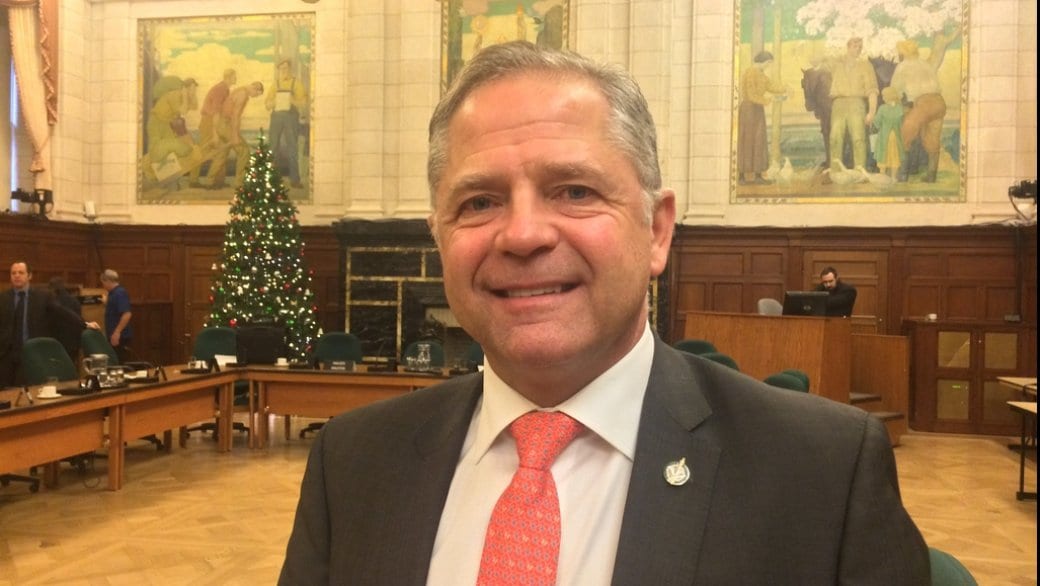After mounting criticism over a policy that bans gay men from donating blood, Canadian Blood Services (CBS) might scrap all its blanket restrictions and replace them with personalized risk assessments.
“Just an incremental shortening of the policy doesn’t deal with the principal assertion of unfairness and discrimination,” Graham Sher, the CEO of Canadian Blood Services, told the House of Commons health committee on Dec 8, 2016. He said Canada should consider “a completely different approach . . . a policy that does not discriminate on the basis of gender and sexual orientation.”
On June 20, Health Canada lowered its restrictions on blood donations from men who have sex with men (MSM), from a five-year deferral period to 12 months. That restriction applies to gay and bisexual men as well as some trans people.
At the committee, CBS’ chief medical officer suggested the deferral period could be replaced with “gender-blind or sexual orientation-blind screening approaches.”
“Such an approach might include asking all donors whether they have had a new sexual partner, or more than one sexual partner, in a given timeframe,” Dana Devine said.
She added that 400 donors rejected in past years became eligible when the deferral period dropped from five years to one year. The agency expects that dropping the MSM deferral will bring more donors, including straight allies who claim to be boycotting donation on principle.
According to the Public Health Agency of Canada, MSM accounted for 54.3 percent of the country’s new HIV infections in 2014.
Sher told the committee that Canada has a lack of reliable domestic data as well as demographics that don’t easily correlate with figures from the US or other countries.
“Most public health research has focused on individuals within the MSM population whose behaviours are considered high risk for infectious disease,” he said. “There is little data for those at low risk, such as those in long-term, monogamous relationships. New research must be done.”
In late January 2017, CBS will host a two-day consultation with Canadian scientists, international health ministers, patient advocacy groups and LGBT groups. The agency said it has invited Egale Canada, the Community-Based Research Centre for Gay Men’s Health and the Canadian Institute of Diversity and Inclusion.
Sher also pushed back on suggestions that Canada should drop all restrictions, because CBS test blood for HIV and other infections.
“There is a brief period shortly after infection when pathogens are not detectable by current essays,” he said, describing the period as less than 10 days for HIV and hepatitis C, and under two months for most other pathogens.
“Our testing processes would not detect the viruses, and the blood products manufactured from that donation could be infectious for patients,” Sher said. While “less than a dozen” blood samples test positive for HIV each year, Sher noted that “no test is perfect, and can fail for technical reasons or because the pathogen undergoes mutation.”
The Dec 8 session might extend into late January or later, if the Liberal-majority committee chooses. It was sparked by Conservative MP Len Webber back in June. “It was a positive meeting, but further research needs to be done,” Webber tells Daily Xtra. He’s keeping an eye on January’s consultation, and the government’s pledges.
Since 2014, the Liberal party website has hosted a petition to “end the gay blood donation ban” before pledging to do so in the 2015 election. The government says it’s sticking to that promise, and has pledged $3 million to “to fund behavioural research to ensure non-discriminatory practices,” including the January 2017 consultation.
CBS facilitates all blood donations outside Quebec, where Héma-Québec plays a similar role; both follow almost-matching protocols.
Yet CBS drew outrage after setting an Aug 15 policy to screen donors according to their genitalia, which characterizes trans women who have not had sex-reassignment surgery as men, to help categorize MSM. Héma-Québec sorts trans people on a case-by-case basis.

 Why you can trust Xtra
Why you can trust Xtra


